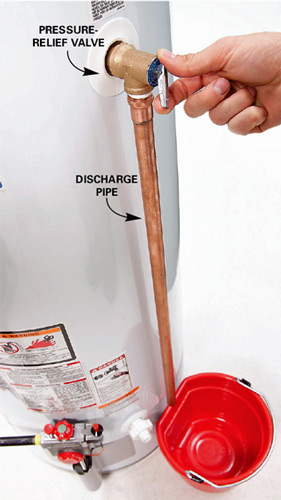Dealing with the Top Water Heater Crisis Situations
Dealing with the Top Water Heater Crisis Situations
Blog Article
The publisher is making several good annotation on Common Hot Water Heater Problems in general in this content following next.

A water heater is just one of one of the most essential standard home appliances that can be found in a residence. With water heaters, you do not need to experience the tension of home heating water manually every single time there is a need to wash, wash, or the dishes. There is constantly a possibility that your water heater would act up as with a lot of mechanical tools.
It is important to note any little malfunction and also tackle it quickly before things get out of hand. Most times, your water heater begins to malfunction when there is a build-up of sediments as a result of continual usage. As a precaution, periodic flushing of your hot water heater is advised to stop sediment buildup and also protect against practical failure.
Usual hot water heater emergencies and also exactly how to deal with them
Dripping water heater container.
In this situation, you need to turn off your water heater, enable it to cool down, and carefully look for the resource of the problem. At times, all you require to do is to tighten up a few screws or pipeline connections in situations of small leaks. If this does not function and the leakage lingers, you might need to use the solutions of a specialist for an ideal substitute.
Varying water temperature.
Your water heater can start producing water of different temperatures generally ice chilly or scalding warm. There may be a demand to change either the home heating or the thermostat unit of your water heating unit.
Insufficient warm water
Handling a not enough supply of hot water can be discouraging. It might be that the water heater can't support the warm water need for your apartment. To handle this issue, you can try to readjust your heater's temperature dial and wait for a few minutes. You can ask for the assistance of an expert plumber if the issue continues. Conversely, you might update your hot water heater to one with a larger capacity.
Discolored or smelly water
When this happens, you need to recognize if the issue is from the water or the container source. If there is no amusing scent when you run cold water, then you are specific that it is your water heating system that is faulty. The smelly water can be caused by corrosion or the buildup of microorganisms or debris in the water heater tank.
Conclusion
Some property owners disregard little warning and minor faults in their water heater device. This just causes additional damage and a possible full malfunction of your home appliance. You ought to handle your water heater mistakes as soon as they come up to stay clear of more expenditures as well as unnecessary emergency difficulties.
With water heating units, you do not need to go through the stress and anxiety of heating water by hand every time there is a need to take a bath, do the washing, or the recipes. Your water heating unit can start generating water of different temperatures generally ice hot or cool warm. It may be that the water heating system can not support the warm water demand for your house. If there is no amusing smell when you run cold water, then you are specific that it is your water heating system that is damaged. The stinky water can be caused by rust or the accumulation of bacteria or debris in the water heater container.
Common Water Heater Issues and What You Should Do
What Type of Water Heater Do You Have?
Before we begin it’s first important that you identify the type of water heater you have on your property. There are two main types of water heaters out there: conventional and high efficiency.
Both of these types of products typically use either gas or electricity to heat power. There are also solar water heaters that use a thermal collector on the roof or yard to heat the water.
While these models are not as common, they can cut heating costs in half. In this article, we will focus on conventional and high efficiency.
How Do My Electric and Gas Water Heater Work?
Though they look similar, electric and gas water heaters work very differently. It’s important to know their basic function because often problems can be specific to the heating source.
In the electric model, a thermostat on the side of the machine detects the temperature of the water in the tank. When the temperature needs to rise electricity flows to a heating element suspended in the water.
Gas models also use a thermostat device — typically with a mercury sensor at the tip and an additional sensor called a thermocouple. The thermocouple detects whether the pilot light is on and controls the flow of gas.
When the thermostat drops below the appropriate level gas is released which becomes ignited by the pilot light. The flame heats the bottom of the water tank which causes hot water to rise and cold water to drop.
This natural circulation continues until the water reaches the desired temperature. Then, the thermostat triggers the gas control valve to shut off the flow of gas.
What Are the Most Common Issues and How Do You Fix Them?
https://happyhiller.com/blog/common-water-heater-issues-and-what-you-should-do/

I found that piece of writing on Is Your Water Heater Leaking? while doing a lookup on the search engines. Enjoyed reading our piece? Please share it. Help another person find it. Thank-you for going through it.
Peace of mind? Dial! Report this page